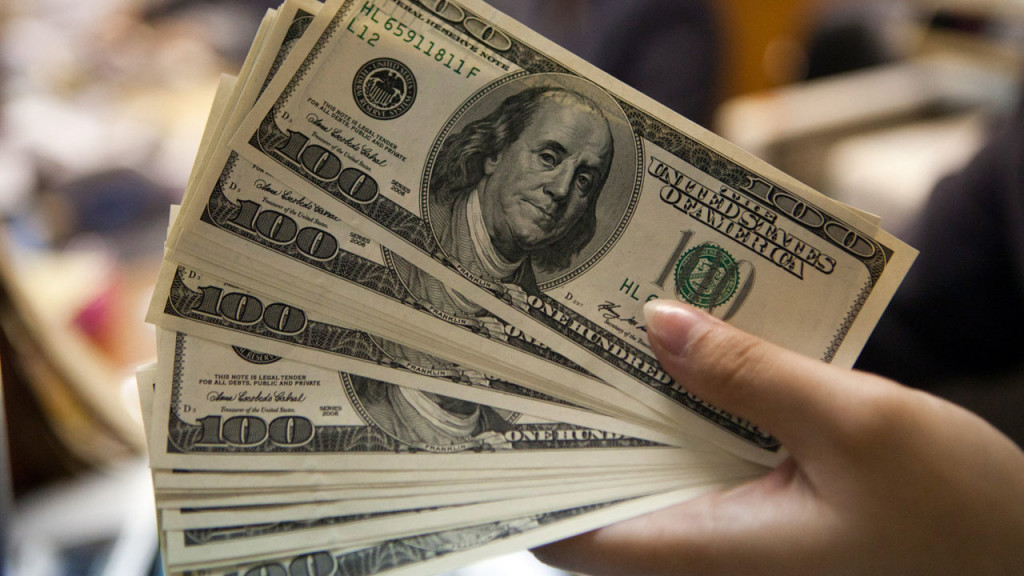By Jeph Ajobaju, Chief Copy Editor
Businesses in Nigeria are being choked by dollar squeeze, and continued fall of the naira, apart from corruption, unstable power supply, and high interest rate with little or no incentive for the real sector.
The naira has fallen 1.04 per cent to a low of 480 on the black market after Abuja announced that airports would reopen for international travel on August 29, a move that could increase dollar demand, according to traders.
The dollar is already on a squeeze, introduced by the Central Bank of Nigeria (CBN) in March when it halted weekly interbank foreign-currency sales.
The CBN also suspended foreign exchange (forex) sales to retail currency bureaus that resell hard currency to individual users with medical bills and school fees abroad.
Now the effects of the dollar shortage are seeping through to the economy.
“A lot of the members can’t access the amount of dollars they need from the banks,” Eke Ubiji, executive secretary of the Nigerian Association of Small and Medium Enterprises, told Bloomberg.
“That is constraining business,” Ubiji added.
The International Monetary Fund (IMF) predicts Nigeria’s economy will contract by 5.4 per cent this year, the most in four decades. The latest official job figures put the second-quarter unemployment rate at 27.1 per cent, the highest in a decade.
Inflation, meanwhile, accelerated to 12.8 per cent in the year through July, from 12.6 per cent the previous month, as prices of imports including food surged.
The naira had been stable for over a week on the black market at N475 per dollar, where it trades at more than 20 per cent weaker to the official over-the-counter spot market.
Reuters reports that with the price of oil, Nigeria’s main export, depressed and foreign exchange reserves dwindling, the CBN is hanging on to dollars to support the naira – leaving a shortage of hard currency supply for investors and importers.
Currency markets anticipate an increase in demand with airports having been closed since March 23 to all but essential international flights as part of efforts to combat the COVID-19 pandemic.
As international travel resumes from August 29, traders anticipate a surge in dollar demand, likely heightening pressure on a currency that has been devalued twice so far, and stretching the ability of the CBN to defend the naira.
Recession in the making
According to Bloomberg, Nigeria’s foreign-currency shortage is squeezing the life out of Africa’s biggest economy.
Banks would not honour card payments, foreign investors cannot get their money out and manufacturers are unable to import vital raw materials as output hurtles toward a second contraction in four years.
Dependent on oil exports for half of its revenue, the Nigeria’s coffers have emptied after crude prices plunged in the wake of the coronavirus pandemic.
There is little prospect of a respite any time soon: it needs oil prices of $70 per barrel (pb) and production of 2 million barrels a day (bpd) to balance its budget.
But prices are hovering around $40 and curbs by the Organisation of Oil Exporting Countries (OPEC) have restricted Nigeria’s output to about 1.4 million bpd.
Lenders, including Guaranty Trust Bank Plc, Nigeria’s biggest by market value, have cut the amount of foreign currency customers can spend on payment cards abroad to $100 a month from $3,000.
Rules on what companies do with the dollars they receive have also been changed, said Emeka Mgbeahuru, who runs Tropitec Ltd., an importer of agricultural equipment from Italy and China with distribution links across West and Central Africa.
“When you source your own dollars, they won’t let you pay in cash into your account and won’t let you transfer to your suppliers,” Mgbeahuru told Bloomberg by phone from Nigeria’s South Eastern commercial hub of Onitsha.
Many banks are following a template they used when they went through a similar contraction in 2016, which was to cut customers’ foreign payments and wait for crude prices to recover before raising the limits.
“The challenge with dollar liquidity is an industry-wide problem,” said Bridget Oyefeso-Odusami, a spokeswoman of Stanbic IBTC Bank, which cut its customers’ card spending to $500 monthly.
The shortage of foreign currency is forcing some companies to consider closing down, said Ubiji.
“If that happens, it has a ripple effect, which is loss of jobs. We wish the situation changes for the better.”
Struggle for survival
As women in hairnets and anti-coronavirus masks sort through folded nappies coming off a conveyor belt, the head of the Nigerian firm they work for wonders how much longer he can afford to keep them in employment.
Around 80 per cent of the materials that go into Lagos-based diaper and sanitary towel manufacturer Wemy’s products are imported. To buy them, Paul Odunaiya needs dollars, which he can no longer find.
“We’re pleading with our suppliers to wait a bit longer so that we can source dollars and pay them,” Odunaiya told Reuters.
Muda Yusuf, director general of the Lagos Chamber of Commerce (LCC) said that, like Odunaiya, the dollar shortage is hitting most of its 2,000 members hard.
“If the situation persists it will lead to lay-offs,” he said. “If you are not producing, there will be a shortage of goods in the market, prices will go up.”
Inflation has risen for 10 straight months, hitting a two-year high of 12.56 per cent in June, piling on greater economic hardship for a population of whom 40 per cent already live below the official poverty line of N137,430 ($382) per year.
Added to that, there have been two devaluations of the naira’s official rate this year.
With the oil market depressed by a producer price war and the pandemic-induced global recession, CBN reserves have fallen 20 per cent in the past year to $36.1 billion, around five months of import cover.
The bank initially sought to stem the decline by suspending dollar auctions in March and continues to severely ration their supply.
“It’s been excruciating,” said Fred Ameobi, executive director of Coscharis Group, a conglomerate whose businesses include automobile assembly.
The government says the economy could shrink by up to 8.9 per cent in 2020, while many of the local banks that Nigerian companies rely on have seen their dollar credit lines halted by international lenders who fear they would not be paid back.
Many firms have resorted to the black market, where the naira trades at around 20 per cent below the official rate, making dollar purchases even more expensive.
For now Odunaiya, whose firm had year to March turnover of N2.5 billion, sees only hard times ahead. “It’s going to be a tough year … Some businesses will die.”


